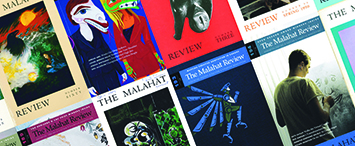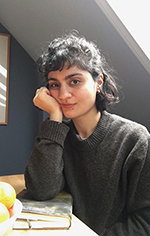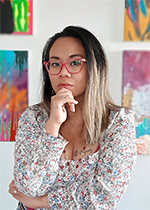|
|
updated general guidelines

The pandemic brought an increase in general submissions that hasn't subsided, and while we're grateful for your trust and support, it means we've implemented set reading periods for certain genres.
Canadian writers can still submit all year, in any genre.
International writers are welcome to submit creative nonfiction throughout the year, however please read the specific guidelines for poetry and fiction to know when submissions will be open for those genres.
*Please note that these general submission guidelines are separate from contest guidelines.*
Questions about translation submissions, response time, or how much we pay per page? Head on over to our updated submission guidelines page. (If you still have questions, send us an email!)
Bahar Orang, 2022's Open Season CNF Award winner
 Open Season Awards creative nonfiction judge Erin Soros talks with the Open Season CNF Award winner about the interplay between being a clinician and a creative writer, how the second person POV has the capacity to collapse time, and question whether the love story can be a site of resistance. Open Season Awards creative nonfiction judge Erin Soros talks with the Open Season CNF Award winner about the interplay between being a clinician and a creative writer, how the second person POV has the capacity to collapse time, and question whether the love story can be a site of resistance.
ES: You are both a clinician and a creative writer—can you describe the interplay and tensions between these roles in terms of questions, community, approach, ethics, hope?
BO:
When I was an English lit student applying to medical school, or when I was a published writer applying for residency programs—I had so many possible answers to this question. My mind was saturated with theories, takes, histories. I was basically smug with the knowledge that creative writing and the arts somehow did something good for clinical work. I could recite a lot about empathy, humility, political sensibility, openness to ambiguity. I could talk, very defensively, about how writing, for me, keeps the medical world open, porous, and interferes, or agitates where things are starting to calcify. Now…I don’t know. I’m filled with an immense apprehension. I’ve seen clinical institutions greedily swallow up and transmutate and monetize and neutralize all the things that I thought creative writing or the arts could make possible. I am letting go of any belief I once had that poetry, art, language, contains a kind of inherent or unshakeable alternativity.
But at the level of my daily life, I know that writing is how I think. The impossible, complex, unbearably difficult dilemmas that come up through clinical work—writing is how I grapple. Poems, essays, theory. Not towards coherency, but against alienation, hopelessness, helplessness, giving up. Writing is my way in. And then there is that rare experience through writing, of tapping into a sort of wondrous clarity, a shimmering relief, that strange, brief liberating moment of the world suspended and language opening a pocket of unprecedented wisdom—the other place I feel that, on occasion, is in the clinic, with the person sitting in front of me, through our conversations, through our intimacies—a real connectedness with the world—I feel that through writing sometimes and I feel that in the clinic sometimes too. There’s something deeply akin there, for me.
Read the rest of Bahar Orang's interview.
Ellise Ramos, spring issue #218 cnf contributor
 Past contributor Kathy Mak talks with the spring issue #218 creative nonfiction contributor about found family, writing about trauma, and how mothers are our first gods. Past contributor Kathy Mak talks with the spring issue #218 creative nonfiction contributor about found family, writing about trauma, and how mothers are our first gods.
KM: There’s the proverb “blood is thicker than water” that places a strong emphasis on familial bonds. Yet besides representing shame, blood in your story weaves into the fraught relationship between you and your mother, and the tendency to leave things unsaid. What made you choose to capitalize the word “mother”?
ER: For most of my childhood, and I think this applies to most children as well, I viewed my mother as the omniscient one, almost god-like in status. The capitalization was meant to place her above everyone else: the all-seeing, all-knowing one, especially from the point of view of a child. Additionally, the Philippines is an extremely religious country, so the idea of “god” is present everywhere, it’s unavoidable. It’s very ingrained in our culture.
And so there’s a very strict tradition of honouring your elders because of this religious background, unquestionably so, much like the faith required of you if you believe in god. I wanted to emphasize that in my recounting of her. Of course, now I see her as human, but there’s still that mingling thought—that urge that my psychiatrist tells me is natural—we will always want the approval of our mothers. Even if it’s illogical. And I think that’s very powerful, how embedded that is within us. Mothers truly have a lot of power. They are our first gods.
And yes, it’s very interesting that you brought up that proverb. I’ve never been a proponent of it. I really believe that you choose your own family, and that familial bonds are not automatic, but earned. When we turn to this excuse of placing “family” above all others, no matter the cost, we put the vulnerable into situations ripe for abuse. Read the rest of Ellise Ramos' interview as well as an excerpt.
|
|
|
|
|
|
|
|
|
|
|
|